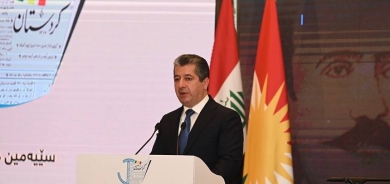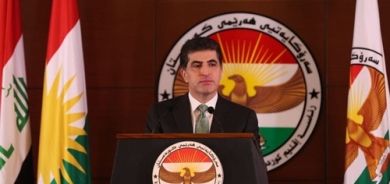Is Iraq Becoming a Failed State?

It is probably premature to reach such a dire conclusion, but the trend is extremely ominous. And there are indications that Iraq could be caught up in a larger regional maelstrom of a Sunni-Shiite power struggle. Certainly, what has occurred next door in Syria is having a destabilizing effect on Iraq. The Syrian civil war largely pits a Sunni-dominated insurgency against a coalition of ethnic and religious minorities backing the government of Bashar al-Assad. The two most prominent factions in that coalition are Assad’s own Alawite community (a Shiite offshoot) and Syria’s beleaguered Christians. Other ethno-religious minorities (especially the Kurds) tend to be caught in the middle.
The fighting in Syria has caused numerous problems for Iraq. One has been the influx of tens of thousands of Syrian refugees, placing an enormous logistical and financial burden on both the national government in Baghdad and the Kurdish Regional Government (KRG). But the conflict has also exacerbated the already festering Sunni-Shiite tensions inside Iraq. It is probably not a coincidence that Iraq’s sectarian conflicts re-ignited as the Syrian civil war intensified. Not only has the violence in Syria had that effect, Iraq is under growing pressures from Iran, the leading Shiite power in the region, and Saudi Arabia and Turkey, the leading Sunni powers and the principal sponsors of the anti-Assad insurgency, to take sides in Syria’s civil strife. All of these factors have contributed to greater instability in Iraq.
Thus far, Iraqi Kurdistan has managed to avoid the worst of the violence, but in recent weeks, there are signs of a worsening spillover effect. And the resulting tensions are exacerbating Kurdistan’s own political squabbles. Even with those heightened troubles, though, Kurdistan remains a reasonably peaceful, well-governed political entity—an island of stability in the midst an increasingly chaotic Iraq. The key question is whether it can remain so.
For the leaders of the KRG, and for the United States, it is more and more critical to assess whether Iraq is likely to remain a viable country. There are a good many worrisome signs, and if a full-fledged Sunni-Shiite armed conflict should erupt, the outcome likely will be far different than in 2007. The U.S. military still occupied Iraq during that period, and Washington used as much military and political influence as possible to dampen the fighting. This time, there is no U.S. military presence, and America’s political and diplomatic clout in Baghdad is much less than it was six years ago. If Iraqis don’t stem their own sectarian violence, there is little to prevent Iraq from descending into the nightmare chaos of other failed states.
Ted Galen Carpenter, a senior fellow at the Cato Institute, is the author of nine books and more than 500 articles and policy studies. He is also a member of the editorial board of Mediterranean Quarterly.

 Ted Galen Carpenter
Ted Galen Carpenter






